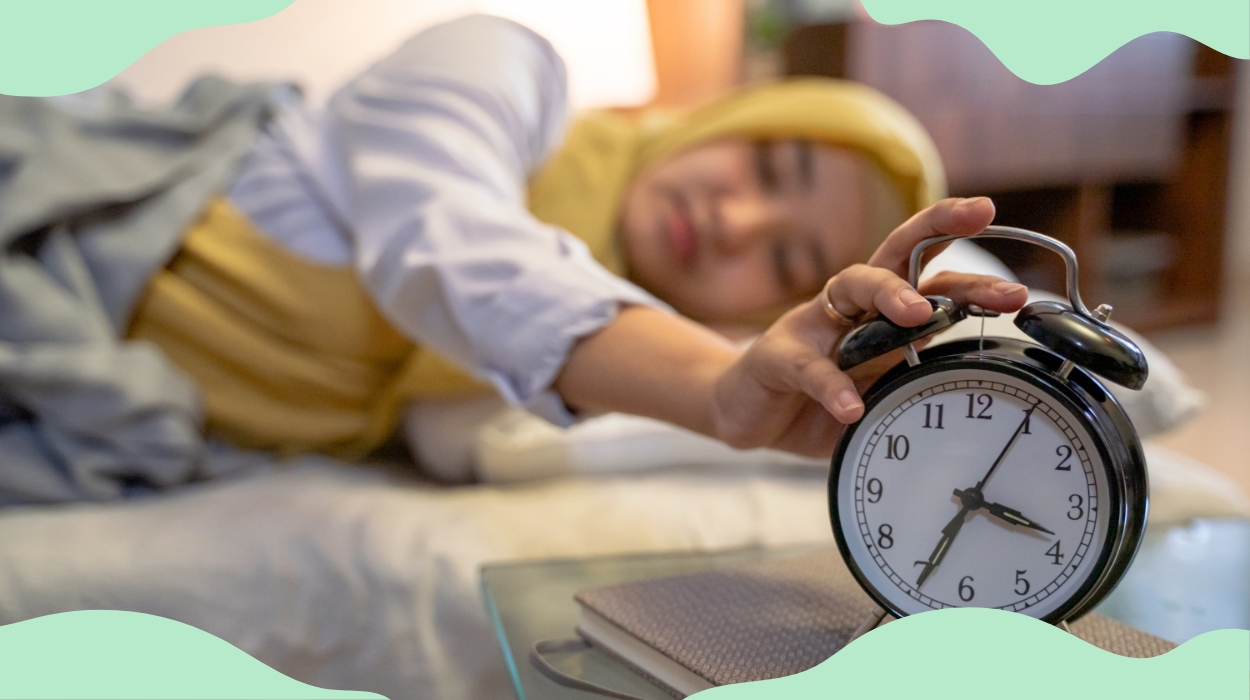Currently, a third of the United States population reports that they do not get the recommended amount of sleep. Insomnia is characterized by difficulty falling or staying asleep, waking up too early, or feeling tired after waking up. Insomnia can have a significant impact on a person’s daily life, affecting their mood, energy levels, and overall health. Chronic insomnia can lead to serious health problems, including depression, anxiety, and an increased risk of heart disease. The effects of insomnia can be far-reaching, affecting not only the individual but also their relationships and work performance. It is essential to understand the causes and effects of insomnia and seek proper treatment to improve the quality of life for those affected.
How to Fall Asleep Fast?
Falling asleep quickly can be challenging, but there are several strategies that individuals can use to promote relaxation and improve sleep quality:
Why Do You Have Trouble Falling Asleep?
There are several reasons why a person may have trouble falling asleep, ranging from physical to psychological factors. Some of the common causes of difficulty falling asleep include:
- Stress and Anxiety: High levels of stress or anxiety can make it challenging to relax and fall asleep. Racing thoughts, worries, and fears can keep the mind active, making it difficult to wind down and fall asleep.
- Poor Sleep Habits: Poor sleep habits, such as an irregular sleep schedule, excessive screen time before bed, and consuming caffeine or alcohol, can disrupt the body’s natural sleep-wake cycle and make it harder to fall asleep.
- Medical Conditions: Certain medical conditions such as sleep apnea, restless leg syndrome, chronic pain, and mental health conditions (i.e. depression, schizophrenia) can interfere with sleep quality and make it difficult to fall asleep.
- Environmental Factors: Environmental factors such as noise, light, and temperature can affect sleep quality and make it harder to fall asleep.
- Medications: Some medications such as antidepressants, stimulants, and steroids can interfere with sleep quality and make it harder to fall asleep.
Best Method to Help You Fall Asleep Faster 2024

The Military Method
The military method is a form of visualization that helps your body relax and to clear your mind of anxious thoughts. This was developed to help Navy Pilots fall asleep in under ten minutes.
- Starting from the top of your head relax the muscles in your face and mouth
- Lower shoulders to release tension
- Let hands fall to sides
- Relax your chest as you exhale
- Relax all parts of your legs (from thighs to ankles)
- For 10 seconds visualize a relaxing scene or image (can also imagine yourself lying down in a pitch-dark room on a comfy couch).
- Can repeat, “Don’t think” either in your head or out loud if having trouble with imagery for 10 seconds.
4,7,8 Method
This is a type of meditation that will help you to relax.
- Sit up straight and place the end of your tongue behind your top front teeth
- Breathe out through your mouth and say, “Whoosh”
- Mentally count to four and breathe out through your nose with your mouth closed.
- Hold your breath and mentally count to seven.
- Breathe out through your mouth and say, “whoosh” while mentally counting to eight.
- Breathe in and repeat the steps three more times.
Lowering Temperature
Room temperature can have an impact on how fast you fall asleep. When people are falling asleep, body temperature tends to drop more, and bedding is used to help balance the temperature reduction. Therefore lowering the temperature will encourage you to curl in the blanket which will warm the skin and help you fall asleep faster. Setting the thermostat between 65 to 68 degrees Fahrenheit will help to accelerate the sleeping process. If the air conditioning is not your preference try opening the windows and doors to promote airflow or use a fan.
Tips For Getting Better Sleep

Here are some tips that can help you fall asleep faster:
- Stick to a Sleep Schedule: Establish a consistent sleep routine by going to bed and waking up at the same time every day, even on weekends.
- Create a Relaxing Sleep Environment: Make your bedroom a comfortable and relaxing place to sleep by keeping the room cool, quiet, and dark. Use comfortable bedding and pillows to create a cozy environment.
- Avoid Stimulants: Avoid consuming caffeine, alcohol, and nicotine before bedtime as these substances can interfere with sleep quality and make it harder to fall asleep.
- Practice Relaxation Techniques: Relaxation techniques such as deep breathing, meditation, and progressive muscle relaxation can help calm the mind and body and promote relaxation.
- Exercise Regularly: Regular exercise can improve sleep quality and help you fall asleep faster. However, avoid exercising too close to bedtime as it can interfere with sleep.
- Talk to your doctor: It is essential to identify the underlying cause of difficulty falling asleep and address it through lifestyle changes, medication adjustments, or therapy. Maintaining healthy sleep habits, creating a relaxing sleep environment, and seeking medical advice if necessary can help improve sleep quality and promote better sleep.
- Write Down Worries: Jotting down your worries before bed can help you release them and avoid ruminating on them. This is especially helpful for those having issues falling asleep with anxiety.
- Try Cognitive Behavioral Therapy (CBT): CBT is a form of talk therapy that can help individuals identify and change negative thought patterns and behaviors that contribute to anxiety and sleep problems.
These tips for falling asleep fast can also be used for kids, teens, and those in the military. By incorporating these tips into your daily routine, you may be able to fall asleep faster and improve the overall quality of your sleep.
How Long Should It Take To Fall Asleep?
The amount of time it takes to fall asleep can vary from person to person, and there is no one-size-fits-all answer to this question. Generally, it is considered normal to take between 15 to 20 minutes to fall asleep. However, some individuals may take longer or shorter than this, and it can depend on several factors such as age, health, lifestyle habits, and stress levels.
Factors such as caffeine and alcohol intake, screen time, taking certain medications, and bedtime routine can also affect how long it takes to fall asleep. If an individual consistently takes longer than 30 minutes to fall asleep, it may be a sign of a sleep disorder such as insomnia.
Conclusion
By establishing a consistent sleep routine, creating a relaxing sleep environment, avoiding stimulants, practicing relaxation techniques, and exercising regularly, individuals can improve their sleep quality and fall asleep faster. Identifying causes of sleep issues can aid in falling asleep faster and getting sleep quality. Additionally, the military method, which involves relaxing the body, deep breathing, and focusing on a relaxing environment, can be an effective technique to help individuals fall asleep quickly.
By implementing these strategies, individuals can improve their overall health and well-being by getting the restful sleep that they need.
Frequently Asked Questions
It should take about 15 to 20 minutes to fall asleep. If it takes longer than 30 minutes, it may be a sign of a sleep disorder such as insomnia.
Relaxation techniques such as deep breathing, meditation, and progressive muscle relaxation can help calm the mind and body and promote relaxation.
Yes, regular exercise can improve sleep quality and help you fall asleep faster. However, avoid exercising too close to bedtime as it can interfere with sleep.
Make your bedroom a comfortable and relaxing place to sleep by keeping the room cool, quiet, and dark. Use comfortable bedding and pillows to create a cozy environment.
Certain herbal teas that contain chamomile10, valerian root11, and kava12 can have a calming effect and help promote relaxation and sleep. In addition it is important to note that valerian root does have side effects such as drowsiness, headaches, stomach aches and can produce vivid dreams. Therefore use with caution and try to avoid using it every night.
Yes, the blue light emitted by electronic devices can interfere with sleep quality and make it harder to fall asleep. Avoid using electronic devices at least an hour before bedtime. If you read before bed, avoid e-books and read a physical book instead.
Establish a consistent sleep routine by going to bed and waking up at the same time every day, even on weekends. Try to also keep the bedtime routine consistent as well as far as what is done to prepare for sleep every night.
If you consistently have trouble falling asleep or staying asleep, it may be a sign of a sleep disorder such as insomnia or sleep apnea. Consult a healthcare professional for advice on how to improve your sleep quality.

